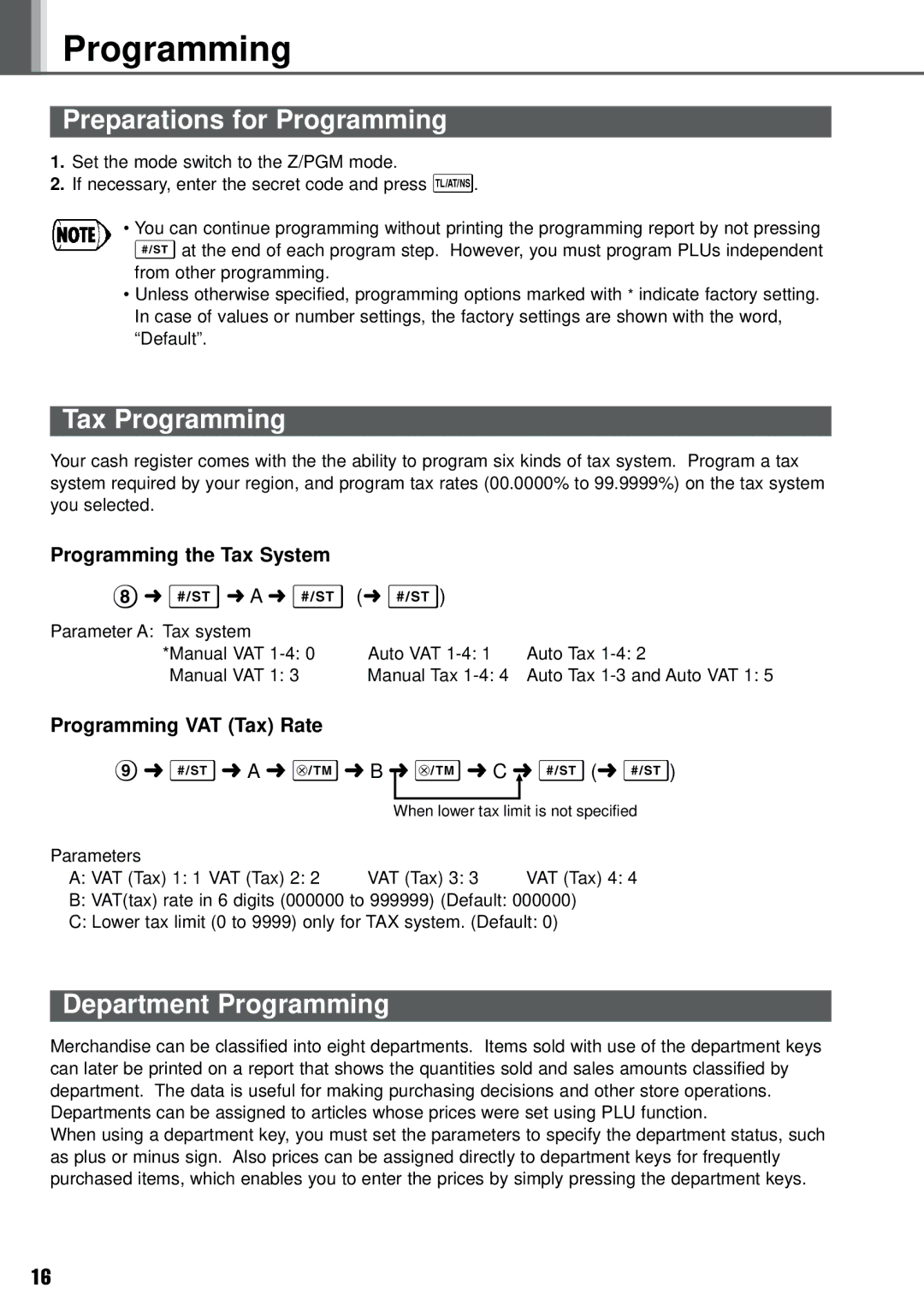
Programming
Preparations for Programming
1.Set the mode switch to the Z/PGM mode.
2.If necessary, enter the secret code and press t.
•You can continue programming without printing the programming report by not pressing S at the end of each program step. However, you must program PLUs independent from other programming.
•Unless otherwise specified, programming options marked with * indicate factory setting. In case of values or number settings, the factory settings are shown with the word, “Default”.
Tax Programming
Your cash register comes with the the ability to program six kinds of tax system. Program a tax system required by your region, and program tax rates (00.0000% to 99.9999%) on the tax system you selected.
Programming the Tax System
8 ➜ S ➜ A ➜ S (➜ S)
Parameter A: Tax system |
|
|
*Manual VAT | Auto VAT | Auto Tax |
Manual VAT 1: 3 | Manual Tax | |
Programming VAT (Tax) Rate
9 ➜ S ➜ A ➜ x ➜ B ➜ x ➜ C ➜ S (➜ S)
When lower tax limit is not specified
Parameters
A: VAT (Tax) 1: 1 VAT (Tax) 2: 2 VAT (Tax) 3: 3 VAT (Tax) 4: 4
B:VAT(tax) rate in 6 digits (000000 to 999999) (Default: 000000)
C:Lower tax limit (0 to 9999) only for TAX system. (Default: 0)
Department Programming
Merchandise can be classified into eight departments. Items sold with use of the department keys can later be printed on a report that shows the quantities sold and sales amounts classified by department. The data is useful for making purchasing decisions and other store operations. Departments can be assigned to articles whose prices were set using PLU function.
When using a department key, you must set the parameters to specify the department status, such as plus or minus sign. Also prices can be assigned directly to department keys for frequently purchased items, which enables you to enter the prices by simply pressing the department keys.
16
